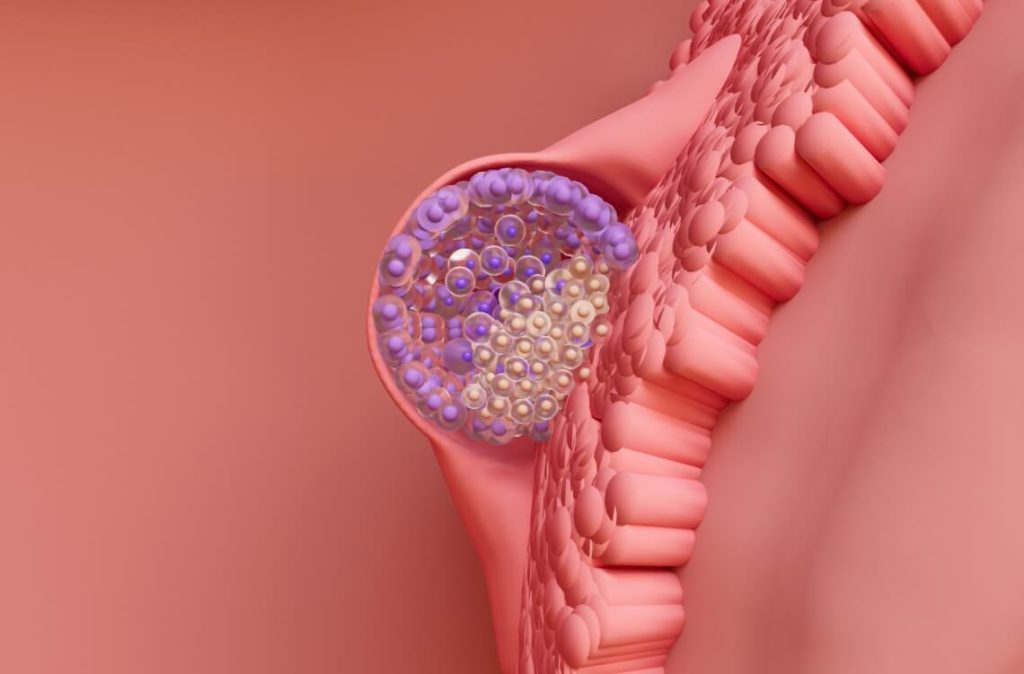The first trimester marks the beginning of an incredible journey.
The pregnancy hormones oestrogen and progesterone are being released into your body.
Your uterus kicks into overdrive, and the first symptoms begin to set in, but barely enough for you to notice.
In fact, most women may still not yet realise they are pregnant.
Regardless, here’s what’s going on in your body and with your baby at four weeks of pregnancy.
Your Baby at 4 Weeks
At four weeks pregnant, your baby is still very small, but the groundwork for their development is being laid out.
By now, the fertilised egg has implanted itself into the lining of your uterus and is now connected to your blood supply.
This implantation is the key event that marks the official start of your pregnancy.
At four weeks, your baby is the size of a poppy seed, measuring about 0.1 inches long (or 2.5 millimeters).
At this stage they are still too small to be detected even by an ultrasound. While it may not sound like much, remarkable changes are already taking place.
Around this time, the placenta and amniotic sac also begin to form.
The placenta will play a vital role in delivering oxygen and nutrients to your baby while removing waste products from their bloodstream.
The amniotic sac is a fluid-filled protective membrane that will cushion your baby throughout pregnancy.
Your Body at 4 Weeks
Successful implantation would have already occurred by now and your uterus has kicked into overdrive.
Your ovaries pump out copious amounts of hormones (progesterone and estrogen) to support the growth of your baby.
At this stage, your body produces more human chorionic gonadotropin (hCG)/ This hormone helps thicken your uterine walls and also tells your body to stop menstruating.
However, it is also the main hormone that is responsible for the notable ‘morning sickness’ that all pregnant mothers go through.
By 4 weeks, your hCG levels should be high enough to give you a positive pregnancy test result.
If this is your first time getting pregnant, you may not even notice anything different. Four week is, after all, still early.
However, studies show that the most common symptoms of early pregnancy may include fatigue and nausea.
The First Signs
Getting a missed period is the telltale sign of pregnancy.
There are very few other conditions that may cause such a symptom in an otherwise young, healthy woman at reproductive age.
For many women, week four is when they start realising their missed period.
However, at this time it may still be too early to detect a pregnancy.
Many women take pregnancy tests too early out of panic or fear, only to receive a false negative.
Home pregnancy tests are designed to detect the hormone hCG, which starts being produced shortly after implantation.
Doctors will recommend you wait a few days after a missed period to take the test.
If you’re already trying to confirm your suspicions it’s important to take precaution.
If you have not been planning for a baby and are still drinking or smoking, it’s best to stop for now.
Getting Answers
You may have been trying for a long time for a baby. Or you may not even have planned for this.
Sometimes sexy time happens in the moment, and there’s never a quick enough opportunity for protection.
You might have even forgotten to take your birth control pill.
Whatever the case may be, your suspicions may just be proven right.
The journey for answers is now underway and you may already be on your way to the pharmacy for a pregnancy test kit.
So take that test, and get your answers, mums. Motherhood may just be around the corner.
References
- Betz, D. (2023, August 14). Human chorionic gonadotropin. StatPearls [Internet]. Retrieved October 21, 2024 from https://www.ncbi.nlm.nih.gov/books/NBK532950/
- Ertmann, R. K., Nicolaisdottir, D. R., Siersma, V., Overbeck, G., Strøyer de Voss, S., Modin, F. A., & Lutterodt, M. C. (2023a, October). Factors in early pregnancy predicting pregnancy-related pain in the second and Third trimester. Acta obstetricia et gynecologica Scandinavica. Retrieved October 21, 2024 from https://pmc.ncbi.nlm.nih.gov/articles/PMC10541159
- Karrar, S. A. (2024, August 12). Initial antepartum care. StatPearls [Internet]. Retrieved October 21, 2024 from https://www.ncbi.nlm.nih.gov/books/NBK570635/
- Kumar, P., & Magon, N. (2012, October). Hormones in pregnancy. Nigerian medical journal : journal of the Nigeria Medical Association. Retrieved October 21, 2024 from https://www.ncbi.nlm.nih.gov/pmc/articles/PMC3640235/
- NHS. (n.d.). NHS choices. Retrieved October 21, 2024 from https://www.nhs.uk/start-for-life/pregnancy/week-by-week-guide-to-pregnancy/1st-trimester/week-4/#:~:text=Your%20baby%2C%20or%20embryo%2C%20is,all%20the%20nourishment%20it%20needs.
Disclaimer: The information provided in this article is for informational purposes only and should not be considered as medical advice from Motherhood. For any health-related concerns, it is advisable to consult with a qualified healthcare professional or medical practitioner.
For more insightful stories and fun recipes, stay tuned to Motherhood Story!
